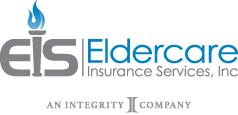If you keep up with insurance industry news, you are sure to have seen "Cadillac Tax" articles and information coming into your inbox and on your social media news feeds; and if you're like me, you're wondering "What in the world is this really, and what is all the fuss about?" It's been made clear that the debate over the new tax isn't expected to go away any time soon- and may be a key issue for the new president in 2016. Check out the Q&A below for a fast and simple explanation of what all the buzz is about.
A: The Cadillac Tax is an excise tax (tax imposed on certain goods) that was passed with the Affordable Care Act. This tax is expected to begin in 2018 and will be imposed on amounts considered "excess benefits" of employer-provided insurance.
Q: What amounts will be considered excess benefits?
A: The government considers anything over $10,200 for an individual and $27,500 for families excess benefits. Limits are higher for pre-65 retirees or employees in high-risk professions: $11,850 for individual and $30,950 for families. Any benefit amount that exceeds these limits are considered excess benefits and will be taxed at the 40% rate.
Q: What is the government's objective for this tax?
A: Healthcare costs rise across the board when medical services are overused, and overuse tends to happen the more robust a person's benefit plan. By trimming down benefit plans, the economic relationship should reduce healthcare costs. The government also estimates a $250 million loss of tax revenue due to related health plan tax breaks. Additionally, payroll taxes are not imposed on employer-sponsored health plans which leads companies to beef up employee benefits instead of pay them a higher wage; the tax may encourage employers to raise wages instead.
Q: Why would opposing parties want this tax repealed?
A: Healthcare recipients will not be happy about getting reduced coverage and possibly higher premiums and deductibles. Business Groups and Labor Unions who have fought for increased employee health coverage also are not pleased with the imposition of the new tax.
Q: What is the cost of repealing the tax? How could those costs be offset?
A: The estimated cost over the next 10 years of repealing the bill is reported by the Congressional Joint Committee on Taxation to be anywhere between $87 and $91 billion. Opponents of the tax say that the cost can be recovered through other kinds of savings plans, like requiring drug companies to offer higher rebates to Medicare recipients.

